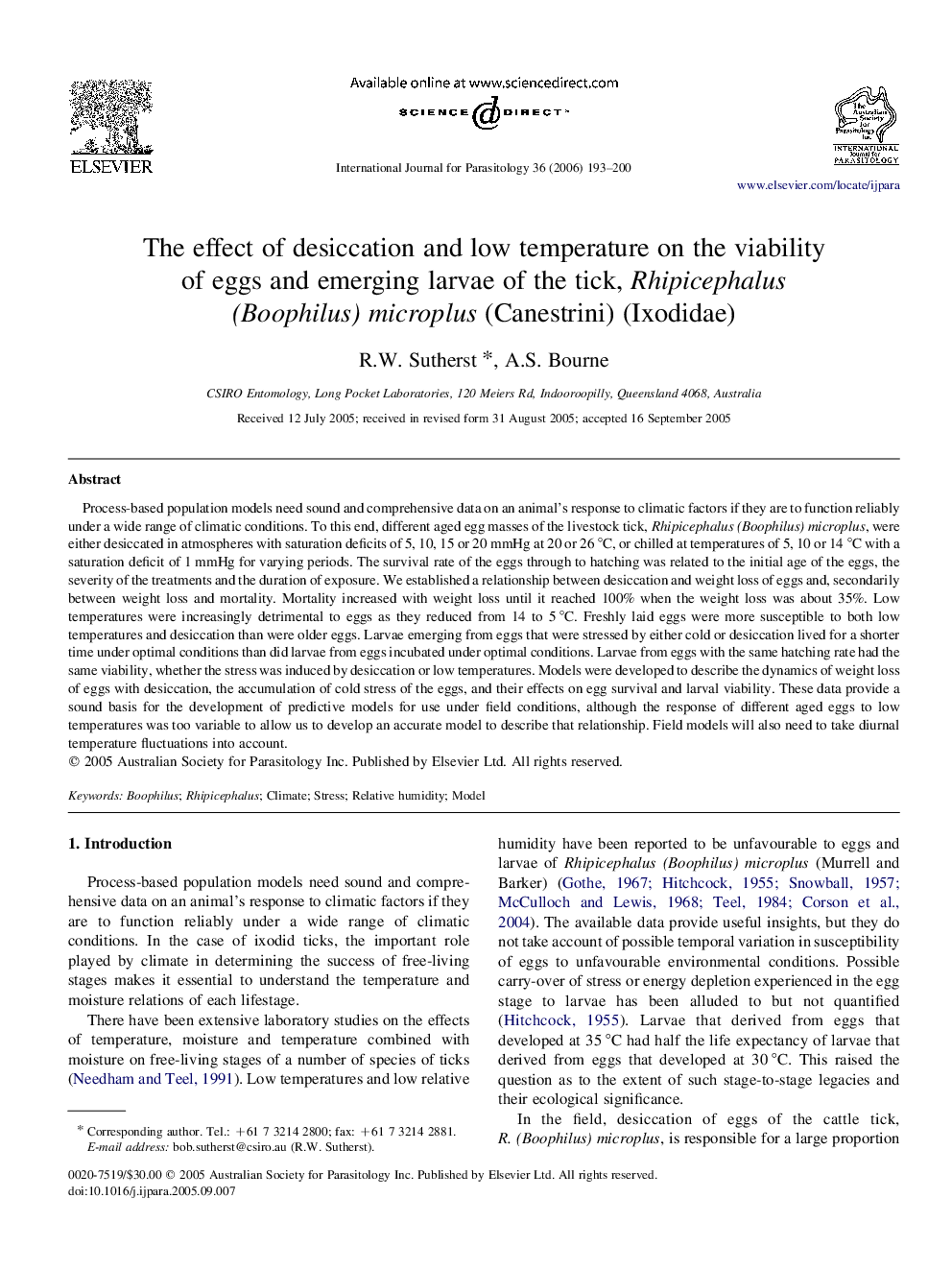| Article ID | Journal | Published Year | Pages | File Type |
|---|---|---|---|---|
| 2437041 | International Journal for Parasitology | 2006 | 8 Pages |
Process-based population models need sound and comprehensive data on an animal's response to climatic factors if they are to function reliably under a wide range of climatic conditions. To this end, different aged egg masses of the livestock tick, Rhipicephalus (Boophilus) microplus, were either desiccated in atmospheres with saturation deficits of 5, 10, 15 or 20 mmHg at 20 or 26 °C, or chilled at temperatures of 5, 10 or 14 °C with a saturation deficit of 1 mmHg for varying periods. The survival rate of the eggs through to hatching was related to the initial age of the eggs, the severity of the treatments and the duration of exposure. We established a relationship between desiccation and weight loss of eggs and, secondarily between weight loss and mortality. Mortality increased with weight loss until it reached 100% when the weight loss was about 35%. Low temperatures were increasingly detrimental to eggs as they reduced from 14 to 5 °C. Freshly laid eggs were more susceptible to both low temperatures and desiccation than were older eggs. Larvae emerging from eggs that were stressed by either cold or desiccation lived for a shorter time under optimal conditions than did larvae from eggs incubated under optimal conditions. Larvae from eggs with the same hatching rate had the same viability, whether the stress was induced by desiccation or low temperatures. Models were developed to describe the dynamics of weight loss of eggs with desiccation, the accumulation of cold stress of the eggs, and their effects on egg survival and larval viability. These data provide a sound basis for the development of predictive models for use under field conditions, although the response of different aged eggs to low temperatures was too variable to allow us to develop an accurate model to describe that relationship. Field models will also need to take diurnal temperature fluctuations into account.
